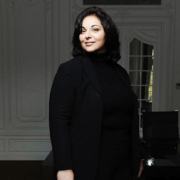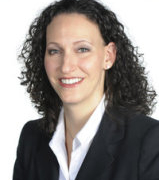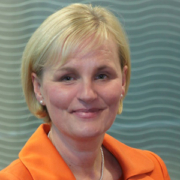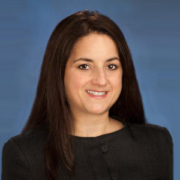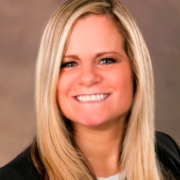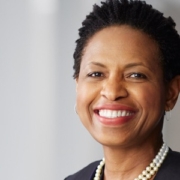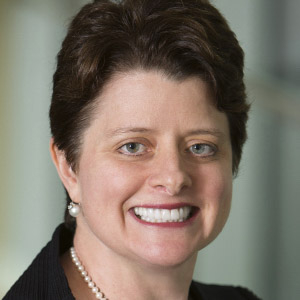Voice of Experience: Yas Banifatemi, Partner, Shearman & Sterling
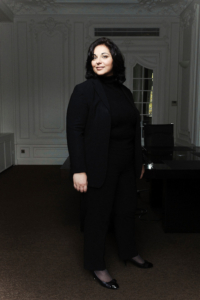 Every day is a new day for Yas Banifatemi, a partner at Shearman & Sterling in Paris. An internationally acclaimed leader in international arbitration and public international law, Banifatemi works in an area of law that is very fluid and where clients regularly confront highly complex – and often emerging – issues.
Every day is a new day for Yas Banifatemi, a partner at Shearman & Sterling in Paris. An internationally acclaimed leader in international arbitration and public international law, Banifatemi works in an area of law that is very fluid and where clients regularly confront highly complex – and often emerging – issues.
“What I love about arbitration is that this is a field where you can truly be creative,” she says. “The law is in the making, so you can be a pioneer of the law.”
In many ways, Banifatemi has already been a pioneer. When she joined Shearman & Sterling 17 years ago, the arbitration field was clearly male-dominated. Today, not only is she the head of the firm’s Public International Law practice, but she was instrumental in the development of the firm’s investment arbitration practice and also acts as deputy managing partner of the firm’s Paris office. In her different capacities, she has seen more and more women in senior corporate and government roles and at her firm.
Beginning Her Career in Arbitration
Banifatemi joined Shearman & Sterling’s arbitration practice in 1997 after earning her doctorate in International Law from Panthéon-Assas University in Paris and her Masters of Law from Harvard. “It was quite a hectic year for me as I was juggling between my studies at Harvard and completing my PhD and writing my dissertation,” she says.
Before joining the firm, Banifatemi had considered a career in academia, but after studying under Arthur van Mehren at Harvard, a leading figure in arbitration in the US, she decided to practice law. “I wanted to be engaged in the process and be an agent of change – to make a difference instead of staying behind the scenes and merely reflecting on matters,” Banifatemi says. “Given how few firms practiced arbitration back then and how few positions existed in the field, joining Shearman’s arbitration practice and having the opportunity to work with Emmanuel Gaillard, one of the world’s leading figures in arbitration, felt like a miracle.”
Although a practitioner first and foremost, Banifatemi has been fortunate enough to indulge her academic interests, conducting seminars in Paris and all over the world and being a co-founder of the Arbitration Academy, an international institution providing for advanced courses in the field.
Overcoming the Odds
Many naysayers told Banifatemi that it was practically impossible to become a practitioner in public international law, which governs the rights and obligations of states and international organizations. International arbitration seemed like the safer bet, and Banifatemi initially focused her efforts on this area of law instead. However, she persisted in her quest to become a specialist in public international law, and as fate would have it, she worked on a matter that would change her career path.
“Three months after I started,” she recalls, “Shearman & Sterling landed a major treaty arbitration case for Slovakia. We were one of the first firms to work on treaty arbitration. I worked specifically on the international law aspects of the case and have been engaged in treaty arbitration and public international law issues ever since.”
Taking it a step further, Banifatemi started the public international law practice when she became partner in 2006, after showing the firm’s leaders just how much the field was expanding and how the firm could benefit from
advising clients on these matters. “Although many people told me it wasn’t possible to be successful practicing this type of law, I forged my own path in the firm and built a practice that is now recognized as one the best in the world,” she says.
Since starting the practice, Banifatemi has been involved in quite a number of high-profile cases, including the representation of the majority shareholders of the former Yukos Oil Company in a landmark case against the Russian Federation for more than $114 billion, the largest amount ever sought in an arbitration case. “I really feel privileged,” Banifatemi says, “because over the last 17 years I have had the opportunity to work on some of the most fascinating international disputes.”
The Progress of Women in Arbitration
According to Banifatemi, women are better represented in the field today, although much progress remains to be made as far as leadership roles are concerned. She adds that she has never felt discriminated against because of her gender, internally or externally. “You have to get experience and exposure and gain the trust of the parties to convince them that you are the right person for the job,” she notes. “These are sophisticated clients who are more concerned with the talents and skills you bring to the table than your gender.”
She urges women to find ways to distinguish themselves and emerge in what has now become a highly competitive field, and acknowledges that this is probably the biggest challenge for anyone who wants to specialize in arbitration. “My advice to anyone considering practicing in the areas of public international law or arbitration is to gain as much exposure as possible, get the best training, education, and experience, and develop your own voice and show how you can make a difference,” she says.
To help those interested in this field, Banifatemi has launched an international internship and training program for candidates from all over the world. The program welcomes 15 to 20 lawyers at any point in time from all around the world and is highly regarded in universities and professional circles. It has even been called the “university of arbitration.” She receives up to 50 applications a week and selects the best and brightest from this talented pool of candidates, offering them the training and mentorship of Shearman & Sterling’s international arbitration group for periods of three to six months. “Due to the global nature of this field, diversity is not always defined in terms of gender; there is more of a focus on regional diversity,” Banifatemi explains.
While Banifatemi is generally pleased with the advancements women have made in the field since she started, there is one area of arbitration where gender equality is still a work in progress. “There is a clear disparity in female representation on arbitral tribunals, but more and more institutions are engaged in addressing this issue and increasingly appoint women as arbitrator. I think we are headed in the right direction,” she says. For the past few years, Banifatemi has been appointed to arbitrator roles and is now frequently called upon by parties and arbitral institutions.
Advocating for Future Generations of Female Leaders
Although formal programs are a great resource for women navigating through their career, maintaining a commitment to women’s career advancement is necessary for progress to continue. “As you advance in your career, you see fewer and fewer women around you. This is one thing that Emmanuel Gaillard was committed to changing in our group, and it was through this awareness and his leadership that women felt supported in their careers at the firm,” Banifatemi says. Today, she noted, there is generally an equal mix of men and women in her group, including another female partner.
Flexible work arrangements that promote a healthier work-life balance have benefited both women and men team members. “We need to ensure that we hire women and strive for parity, but we also need to support both women and men in their personal lives, so that they do not feel as though they must sacrifice their personal life in order to continue advancing in their career,” Banifatemi notes.
Banifatemi, who was selected as one of nine profiled women in The American Lawyer’s “45 Under 45” list in 2011, was most recently recognized by Harvard Law School in its Women Inspiring Change photo exhibit, which was presented in honor of International Women’s Day 2014. “It came as a true surprise, and I was extremely proud to be chosen,” Banifatemi says. “I cherish this honor because to me, there is nothing more important than what we, as leaders, can offer and pass on to the next generation.”
Outside the Office
Outside of the firm, Banifatemi is involved with a mentorship program for women through the American Society of International Law. “I have the opportunity to work directly with young women in public international law and show them the way by answering their questions and acting as a resource to help them stay on track,” Banifatemi says. “I didn’t have the chance to benefit from a similar opportunity as a young associate, so I think it is very important to be there for these future leaders and help them advance in their careers.”
Her love of cinema, music and architecture also take up a lot of her free time. “When I am not at work, I try to nurture these hobbies as much as possible,” Banifatemi says. She attends the cinema whenever she has the chance and is even thinking of starting a personal cinematic project in the future, if her schedule allows.
By Michelle Hendelman

